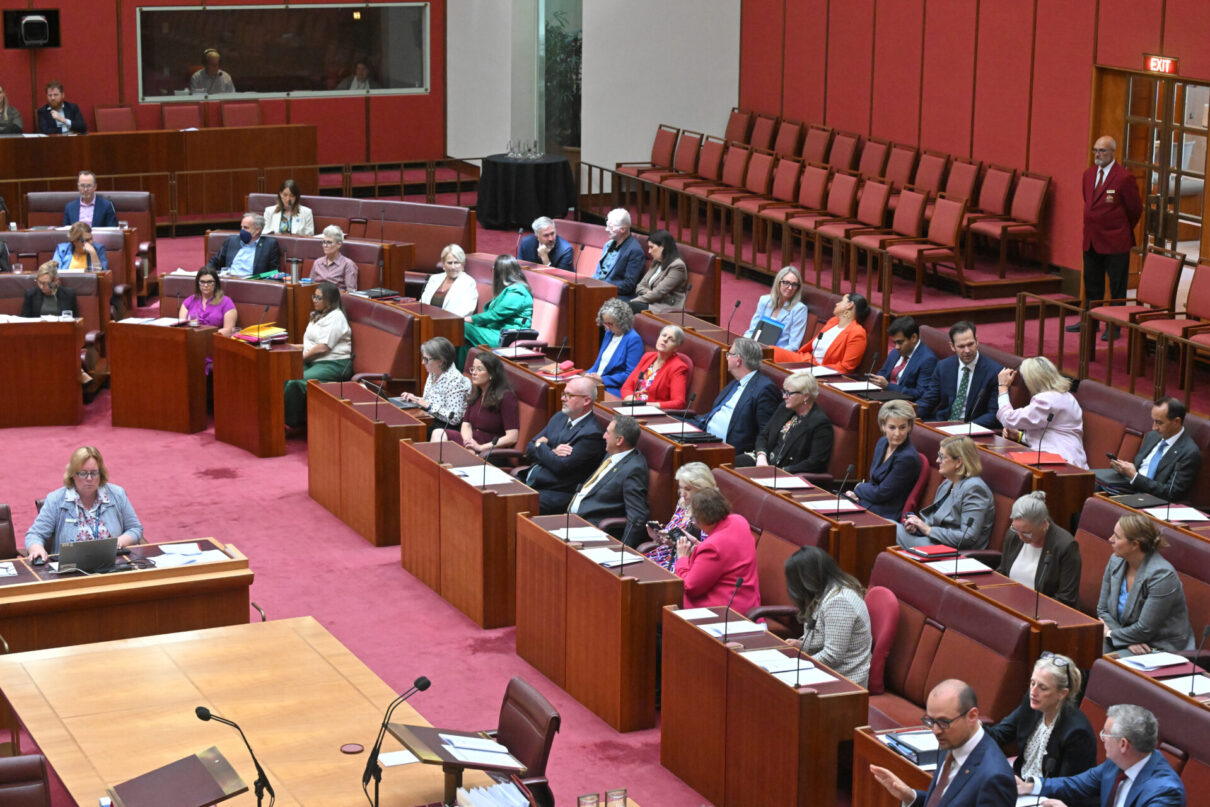More senators for the ACT: Unity ticket, bar one

A four-way debate on ABC Radio Canberra on 1 May produced a rare moment of unity between election candidates. The main candidates for the ACT’s two senate seats agreed that Canberra needs more senators.
This was a unity ticket, minus one.
Liberal ACT senate candidate Jacob Vadakkedathu opposed the move. He said that voters tell him, “we don’t need any more pollies”. It’s easy to offer an argument against more politicians in a cost-of-living crisis.
To be fair to Vadakkedathu, the Liberal Party historically had form on senate representation for the territories.
In the 1970s, Liberals opposed the creation of senate seats for the ACT and NT, arguing that the senate might one day be “swamped” by representatives from other territories like the Cocos Islands, and that it might lose its constitutional character as a “states’ house”. They fought against the measure at three successive elections (including one double dissolution) and forced the matter all the way to an historic, deadlock-resolving joint sitting of the two houses in August 1974.
The idea of “swamping the senate” was laughable then, and even more so now. The quota for ACT and NT Senate elections is extremely high. The Labor Party, the Greens and Independent Senator David Pocock all agree that the ACT’s senate representation should (at least) be doubled.
The Australia Institute has previously proposed a ‘simple formula’ that would make territory senate representation ‘proportionate to Tasmania’s population’. The 48th parliament could pass laws that would set senate places for the ACT and NT in line with their proportionality to the population of Tasmania, and still not upset the federal compact underwriting the Constitution. This would still leave the territories with fewer representatives ‘per heads of population than Tasmania receives’.
Increasing senate seats for the mainland territories from 2 to 4 is less ambitious, but better than nothing. Asked why the government hadn’t advanced the move, Senator Gallagher said that the Liberal Party had pledged to campaign “very strongly” against it.
History shows us that waiting for bipartisanship on this issue is futile. The next parliament would be well advised to wait no longer.
Between the Lines Newsletter
The biggest stories and the best analysis from the team at the Australia Institute, delivered to your inbox every fortnight.
You might also like
The election exposed weaknesses in Australian democracy – but the next parliament can fix them
Australia has some very strong democratic institutions – like an independent electoral commission, Saturday voting, full preferential voting and compulsory voting. These ensure that elections are free from corruption; that electorate boundaries are not based on partisan bias; and that most Australians turn out to vote. They are evidence of Australia’s proud history as an
Australian hearts are shattered – and some would-be leaders have broken them further
There is no denying Australia’s sense of safety has been shattered. There is no denying antisemitism exists in Australia and that the fears of the Jewish community have been horrifically realised in a way that perhaps we will never recover from. There is no denying that in the days and months to come we will
Failing the test: Australian universities in crisis
Great countries have great institutions, but Australian universities are a mess.


